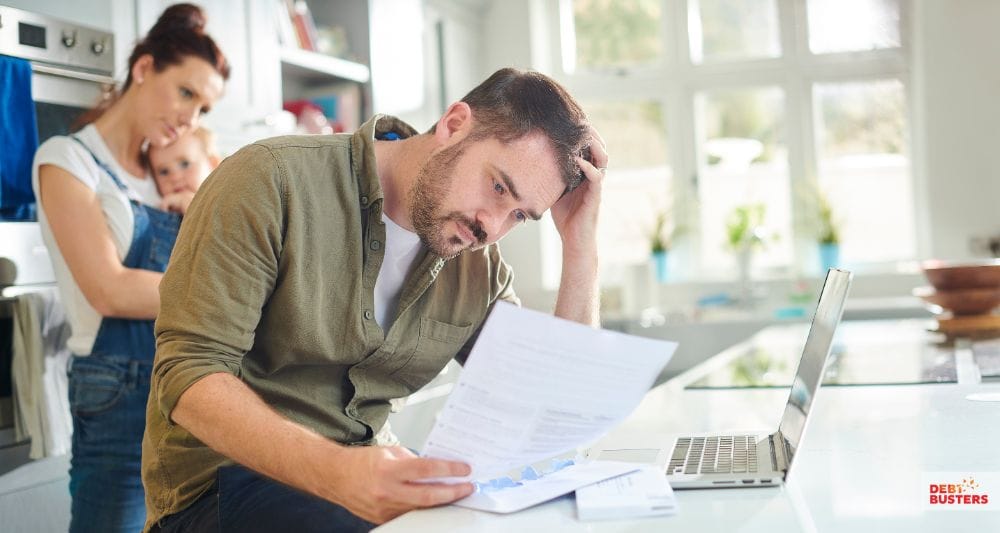Bankruptcy is never anyone’s first choice to get out of debt, but it can be an effective option if you’re eligible. If you’re struggling with debt in Australia, you might be wondering if there’s a Bankruptcy Means Test you can take.
What is a Bankruptcy Means Test? The Means Test determines if you’re eligible to file for debt forgiveness through bankruptcy. In many parts of the world, it takes into consideration your income, expenses, and family size to determine if this type of debt solution is right for you.
However, many are surprised to learn that Australia doesn’t actually have a Bankruptcy Means Test. Instead, there are different thresholds and criteria to help determine if bankruptcy is the right fit for you. In this guide, we’ll explain what it means to be eligible for bankruptcy in Australia.
Is There a Minimum or Maximum Debt to Be Eligible?
There are a lot of myths about bankruptcy in Australia. Because few people feel comfortable talking openly about their money and debts, it’s no wonder there is so much mystery around how a Bankruptcy Means Test would work.
In reality, there is no minimum or maximum debt needed to be eligible for bankruptcy. There is also no minimum or maximum income needed. That means you can apply if you have any level of debt or income.
You can apply for bankruptcy as long as you meet 2 key requirements:
- You’re unable to pay your debts when they’re due
- You’re present in Australia or have a residential or business connection to Australia
As long as the above are true, you pass the so-called Bankruptcy Means Test. However, that doesn’t necessarily mean this is the right debt solution for your needs. To determine that, you’ll need to consider the bigger picture.

What to Consider When Filing for Bankruptcy
Before you start the bankruptcy process, look at your current situation and long-term goals. All of your circumstances together can help you recognize if this is the best debt solution to meet your needs. Some things to consider include:
- Home ownership: If you own a home or property, you could lose your home as a way to repay your debts. There are only some situations where you can keep your family home.
- Occupation: Bankruptcy doesn’t always impact your employment, but there are some industries where you’ll be unable to hold a licence if you have a declared bankruptcy. This includes finance, real estate, and more.
- The long-term effects: The most important thing to consider is the long-term effect of bankruptcy. When you file to have your debts erased or paused, this stays on your credit for 5 years or 2 years from when your bankruptcy ends.
Ultimately, you should choose to declare bankruptcy if there are no other options that fit your unique situation. There are instances where bankruptcy is the best way forward. Even still, you should work with a financial expert to ensure you’re making the right choice.
Bankruptcy Alternatives
If you’ve considered the Bankruptcy Means Test and realized it might not be the best debt solution for you, there are several other alternatives that offer a better long-term outlook. Aside from proper budgeting and preparing for long-term savings, one of these options might be a good fit:
- Debt agreement: Many lenders are comfortable entering a debt agreement to come to an arrangement that works for your repayment. Whether you delay payment for a few months or pay less temporarily, this could be a good short-term option for relief.
- Debt consolidation: Another choice is debt consolidation. This is when you merge your debts into a single debt, usually through a debt consolidation loan. This results in a lower interest rate and a single payment.
- Refinancing: Many loans and debts, including mortgages, can be refinanced to secure a lower-cost payment you can afford.
There are a lot of options depending on your situation that help you avoid bankruptcy. Declaring bankruptcy is a last resort, though it’s certainly a valid, effective choice when the situation is right.
Is Bankruptcy Right for You?
If you’re unable to pay your debts on time and you’re struggling to find a way forward, bankruptcy might be the right option for you. However, before making the decision, be sure to consider the big picture and your long-term goals.
While bankruptcy can be great for the right individual, it also has long-term negative effects that shouldn’t be overlooked. Think through every avenue before taking the next big step.
If you’re not sure whether bankruptcy is right for you, contact Debt Busters today.
With over 20 years helping Aussies solve their financial problems, we’re here for you every step of the way. We can review your unique situation to determine whether bankruptcy or another debt solution is the right path forward.

Frequently Asked Questions
Is there a minimum or maximum income required for bankruptcy?
No. In Australia, there is no minimum or maximum current monthly income required to apply for bankruptcy filing. However, your income may affect whether you’re eligible for alternatives like a debt management plan or debt agreement, which have specific thresholds set by the Australian Financial Security Authority (AFSA).
Will all of my income be taken if I go bankrupt?
Not necessarily. You’re allowed to keep a reasonable portion of your disposable income to cover essential household expenses. If your average monthly income exceeds certain thresholds, you may be required to make contributions to your bankruptcy.
Can I file for bankruptcy jointly with my spouse?
Yes, filing jointly is allowed if both you and your spouse are insolvent. However, each person’s situation is assessed separately, including your current monthly income, debts, and asset.
How can Debt Busters help me if I’m struggling with debt?
Debt Busters is here to support you before things reach the point of no return. If you’re feeling overwhelmed by bills, calls from creditors, or simply don’t know where to start, their team can help you explore your options, Whether that’s negotiating with lenders, or setting up a formal debt management plan.
If you’re considering bankruptcy, Debt Busters can guide you through what it means, help you understand the consequences, and assist with the paperwork.
For many Australians, bankruptcy is a last resort, and Debt Busters is focused on helping you find the right solution before it gets to that stage. Their goal is to give you clarity, options, and a plan for moving forward with less stress and more control.
What happens after I’m declared bankrupt?
Once your bankruptcy begins, a registered trustee is appointed to help manage your financial affairs. They’ll work with you and your creditors to fairly resolve your debts. This might involve selling some of your assets, but many essential items are protected.
There are a few temporary restrictions to be aware of. You may need permission to travel overseas, and you’ll have to inform credit providers if you’re applying for credit over a certain amount.
Bankruptcy usually lasts for three years and one day. That said, this period can be extended if certain obligations aren’t met, like providing information or making required income contributions.
Throughout the process, your bankruptcy trustee will guide you through the legal requirements, and you’ll still have the opportunity to rebuild. While bankruptcy does come with challenges, it can also bring peace of mind and a clear way forward.
Is bankruptcy always the right option?
Not always. Bankruptcy is a form of debt relief meant for those who have no realistic way to repay their debts. If you still have some capacity to repay or negotiate, solutions like a debt management plan or consolidation may offer more flexibility and fewer long-term consequences.
What’s the difference between consumer and business debt in bankruptcy?
Consumer debt includes personal liabilities like credit cards, while business debt is tied to operating a business entity. If you’re personally liable, such as a sole trader, you can include business-related debts in a personal bankruptcy filing.


